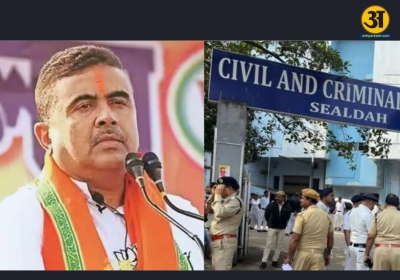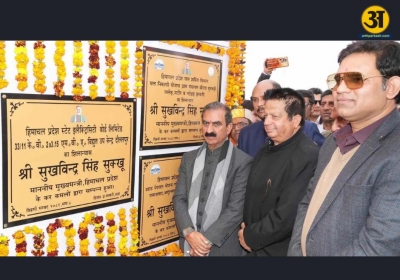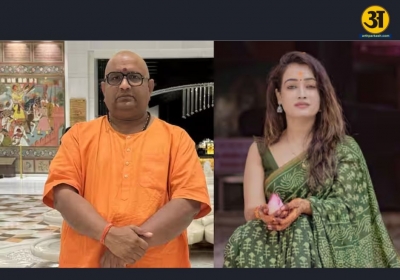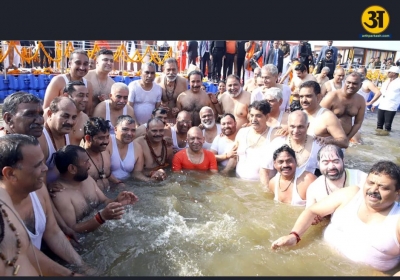
93-year-old Awarded Padma Shri
Mr.Menon claims he will continue to teach "as long as I live."
For Sankaranarayana Menon, the 93-year-old kalaripayattu exponent who has been awarded the Padma Shri for his contributions to martial arts, Republic Day began like any other morning. He awoke at 5 a.m., bathed in the family pond, offered prayers at the courtyard shrine, and walked onto the kalari (arena) in Kerala's Chavakkad, where his students awaited him, ready for three hours of gruelling body and mind training.
There was a brief round of applause for his accomplishment, which was announced by the government on Tuesday night, but there was no excessive revelry. "It goes without saying that I am grateful that the government has recognised me." But this isn't the end of the storey. As long as I live, I will continue to instruct students. It's my responsibility," he replies softly but clearly.
His physique can no longer withstand the everyday rigours of demonstrating the complicated steps ("adavu"). So he confines himself to giving instructions in a metrical, singsong vernacular passed down to him by his predecessors, almost like folk poetry.
Menon claims that he can still do most of the steps "without breaking a bone or tearing a muscle." The movements are no longer based on muscle memory, but rather on memory. "I've been doing those techniques since I was seven years old, and they've become as much a part of me as my thinking." He says, "I feel like I need to finetune some of the steps."
Menon possesses a taut and flexible build in the best kalaripayattu traditions. "We don't want to create large muscles like pehelwans, but rather compact muscles that offer us flexibility and make our reflexes stronger," his son Krishnadas says. My father had a superb kalaripayattu physique and was noted for his deft techniques when he was in his peak."
Menon took his first steps in kalaripayattu in Tirur, which is now part of the Malappuram district. In the army of Vettathu Raja, a local chieftain, his family had commanders. He was not trained to teach the combat art form, but to fight. Kalaripayattu practitioners were wealthy and influential in those days, and even when fighting between princely states decreased under British authority, they thrived under royal patronage.
However, the dissolution of princely kingdoms and the subsequent abolition of royalty put their survival in jeopardy. Modern martial art styles as as karate and kung-fu quickly gained popularity in the state, and kalaripayattu began to fade away. The art was romantic, but it didn't keep the fire in the kitchen blazing.
Menon and his family, on the other hand, never gave up. "My father has never considered retiring. He didn't dilute or overcharge for his instruction. Krishnadas, who also heads the Kerala Kalaripayattu Association and is the go-to adviser for martial arts, an evergreen genre in the Malayalam cinema industry, says, "Whatever the pupil could afford is his guiding philosophy."
In 1957, Menon moved his base to Chavakkad in the Thrissur region, thanks to the invitation of a supporter. His school, Vallabhatta Kalari, has 137 pupils and follows the Kadathanadan tradition, focusing on footwork and body motions rather than armed fighting. The centre has also expanded internationally, with 17 branches in Brussels and Amsterdam, as well as twice as many in Kerala. Punjab and Haryana have also expressed interest.
The upturn in fortunes, according to Krishnadas, began with the state's tourism boom. "I believe it was in the mid-1980s when a man came from Belgium and, after years of training with his father, returned home and founded his own centre." Then more folks started to arrive. Only those who have trained under us are allowed to open branches anywhere in the world," he claims.
Menon's sons are all seasoned professionals, thus he was able to take a sabbatical from teaching. But Unni Gurukkal, as Menon is affectionately known, insists on instructing those who come knocking at his kalari. "It's not in our culture to return them." "Those who seek knowledge will find it," he declares.
The traditional martial art form has become a pastime in the country, losing some of its mediaeval symbolism and relationship with killing. And the Padma Shri is an acknowledgement of this upward trend. But, prize or no award, for Menon, every morning will begin the same way it has for decades.
Also read: Former Bengal Chief Minister rejects Padma Bhushan





